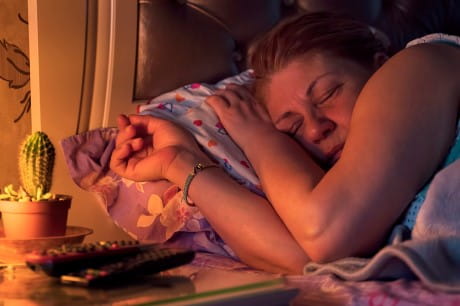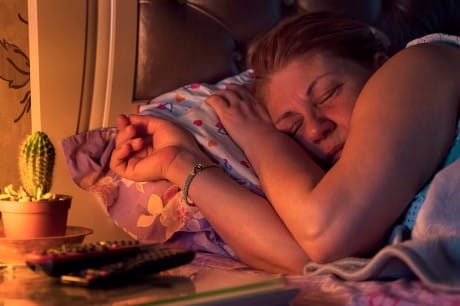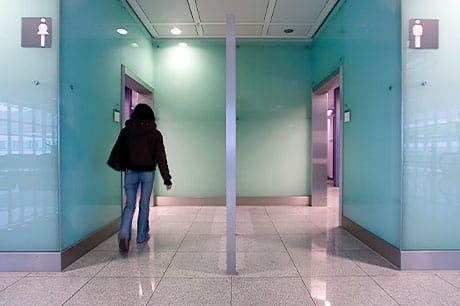What’s behind frequent urination at night?
Want to reduce nighttime bathroom trips and get better sleep? Here’s what’s causing them and how to help.
You’re comfortable in bed, wearing your favorite pajamas wrapped up in a warm blanket. Until you wake up and have to go to the bathroom — again. Was it too much water today? Or just the way your body works? No matter what the reason, getting up to go at night can leave you feeling tired the next day.
But you don’t have to lose more shuteye. With a few small adjustments, you can cut down on those nighttime visits to the restroom.
It’s all about hormones
Throughout the day, your body naturally produces a chemical called antidiuretic hormone (ADH). This valuable substance tells your kidneys how much water to retain. And it works to balance the water in your blood to keep you functioning normally. But that’s not all it does.
“While you sleep, levels of ADH increase to keep you from waking up to go to the bathroom,” explains Dr. Yamunadevi Sadasivan, a primary care doctor at Geisinger 65 Forward. That means most people can make it through an entire night — six to eight hours of sleep — without using the bathroom.
But when those levels don’t rise as much as they should, it can lead to waking up to go. Frequent peeing at night is a condition called nocturia. This pesky problem can mean making unwanted trips to the lavatory instead of sleeping soundly.
Causes of nighttime urination
Several things could be to blame for midnight pit stops. Keep these in mind if you’re getting up to go more than once a night.
Too many beverages
Planning to fill your cup before you turn in for the night? Plan for a few trips to the restroom. “Drinking too much before bed, especially alcohol or caffeine, can cause you to go to the bathroom during the night,” says Dr. Sadasivan.
Medical conditions
Issues that can make you have to go at night can include:
- UTIs
- Diabetes
- Heart or liver failure
- Kidney disease
- Bladder tumors
- Enlarged prostate
- High blood pressure
Excessive salt intake
If you reach for the salt shaker more than usual, it can make for a long night. Your body gets rid of most excess salt and the water it causes you to retain through urination. This means more trips to the bathroom at night. Cutting back on sodium can help combat nocturia. And that’s not all it can help with.
“Making a change to reduce your salt intake will not only help with this problem but also helps to reduce your risk for heart disease and high blood pressure,” Dr. Sadasivan says.
Other causes
Additional causes of frequent urination at night include:
- Sleep apnea
- Swelling in the legs
- Taking certain medications
- Increased age (especially for men over 65)
- Being overweight
- Weak pelvic floor muscles
So how many times is too many? If you have to get up once, you’re still in the normal range. But if you’re regularly going more than that, you may have nocturia.
How to stop peeing at night
If you’re heading to the bathroom instead of heading off to dreamland, talk to your healthcare provider. They may recommend a few adjustments like:
- Cutting back on fluids at night, especially alcohol and caffeine
- Reducing salt intake
- Maintaining a healthy weight
- Taking medications
- Pelvic floor therapy
To combat next day tiredness, Dr. Sadasivan suggests taking a nap during the day if possible.
With some minor changes, you can focus less on visiting the bathroom and more on a restful slumber.
Next steps:
Learn about urology care at Geisinger
Learn about Geisinger 65 Forward
What is urinary incontinence?






